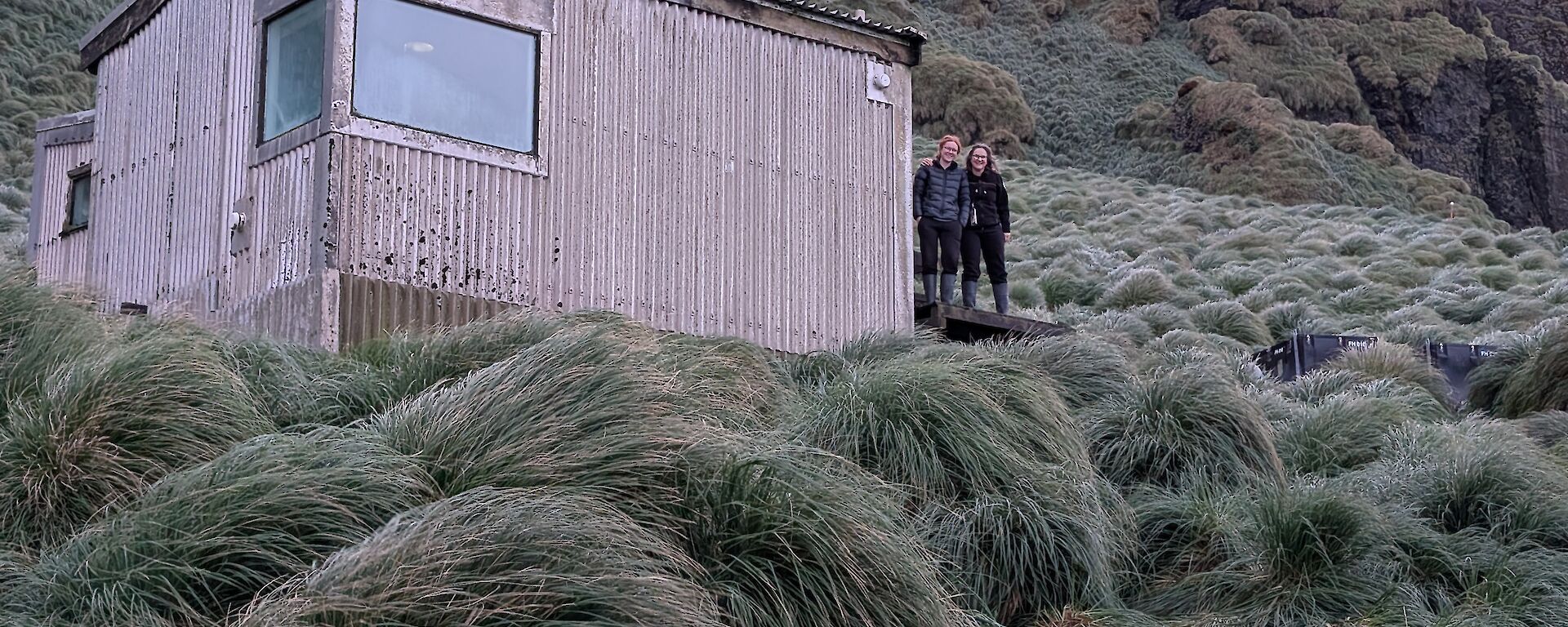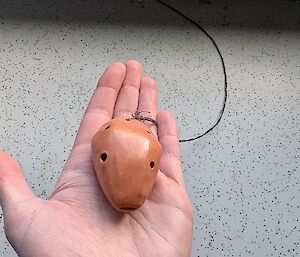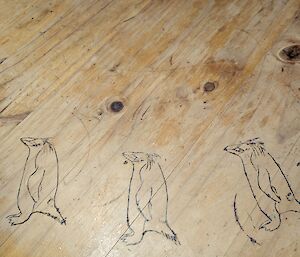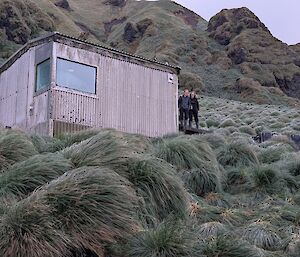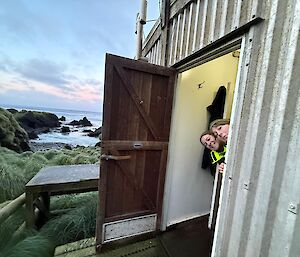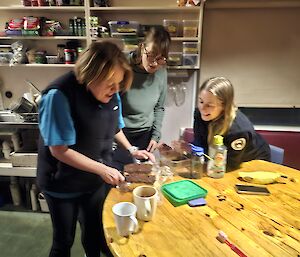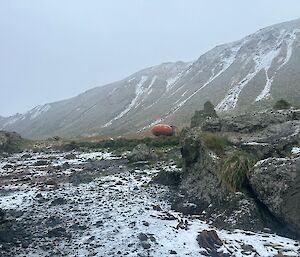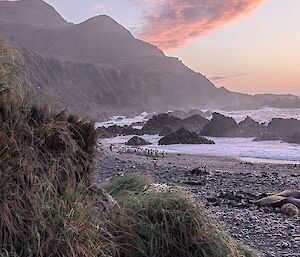The pieces we leave behind
Out here, the field huts are more than shelter. They’re the home of the humble field biologist, and a special place to retreat for the weary expeditioner. They pulse with life much like their surrounds, breathing with the wind and remembering everyone who’s ever called them home, even just for a night.
Each hut has its own character. Brothers Point hut, lovingly referred to as the 'googie', perched above the sea. Bauer Bay hut, tucked behind the sand dunes of a wild and expansive coastline. Green Gorge hut hums with the sound of wildlife nearby. Waterfall Bay hut, another beloved googie, sits between the sea and green escarpment. Hurd Point hut, nestled amongst tall tussock and facing the roiling Southern Ocean, feels homiest. Inside, the huts are thick with memory — handwritten notes tacked to the shelves, personalised CDs lovingly labelled, engraved artworks on the dining tables, homemade treasures everywhere, made before my time.
One afternoon, taking some idle time after some intensive days of fieldwork, I found something tucked away — a small folded piece of paper, the edges softened and yellowed by time. It carried a short poem signed by Tyler Knott Gregson. I won’t share the words here; part of me wants others to find it the way I did — by chance, in the quiet hum of a hut when the wind is shaking the walls. Whoever placed it there seemed to understand this place perfectly: how Macquarie Island gathers the fragments of every person who passes through, and how we leave a little of ourselves behind when we go. Although, this is entirely my own interpretation, shaped and filtered by my own experiences.
The huts hold those fragments. They keep the echo of laughter over games played during windy nights, the soothing sounds of grinding your morning coffee, the shared silence over coffee as elephant seals bellow outside, the ritual of preparing a nourishing meal for each other after a long day. Even when empty, they hum with the weight of lives that have passed through — people bound by mud, wallow water, wind, and the stubbornness it takes to live at the edge of the world.
When I return to a field hut after a long day in the field, it feels like stepping into a shared story. Someone before me boiled water on this same stove. Someone after me will curl up in the same bunk, listening to rain on the walls and windows.
For me, that’s what the hidden poem was really about — that none of us ever truly leave Macquarie Island. A part of us stays tucked up in the hut, resting weary bones, creating lovely artworks to adorn the hut walls, or out in the wild winds counting the life unfolding in front of us. We leave our pieces here, and the island, in return, leaves pieces of itself inside us.
Bree Woods, Wildlife Biologist

